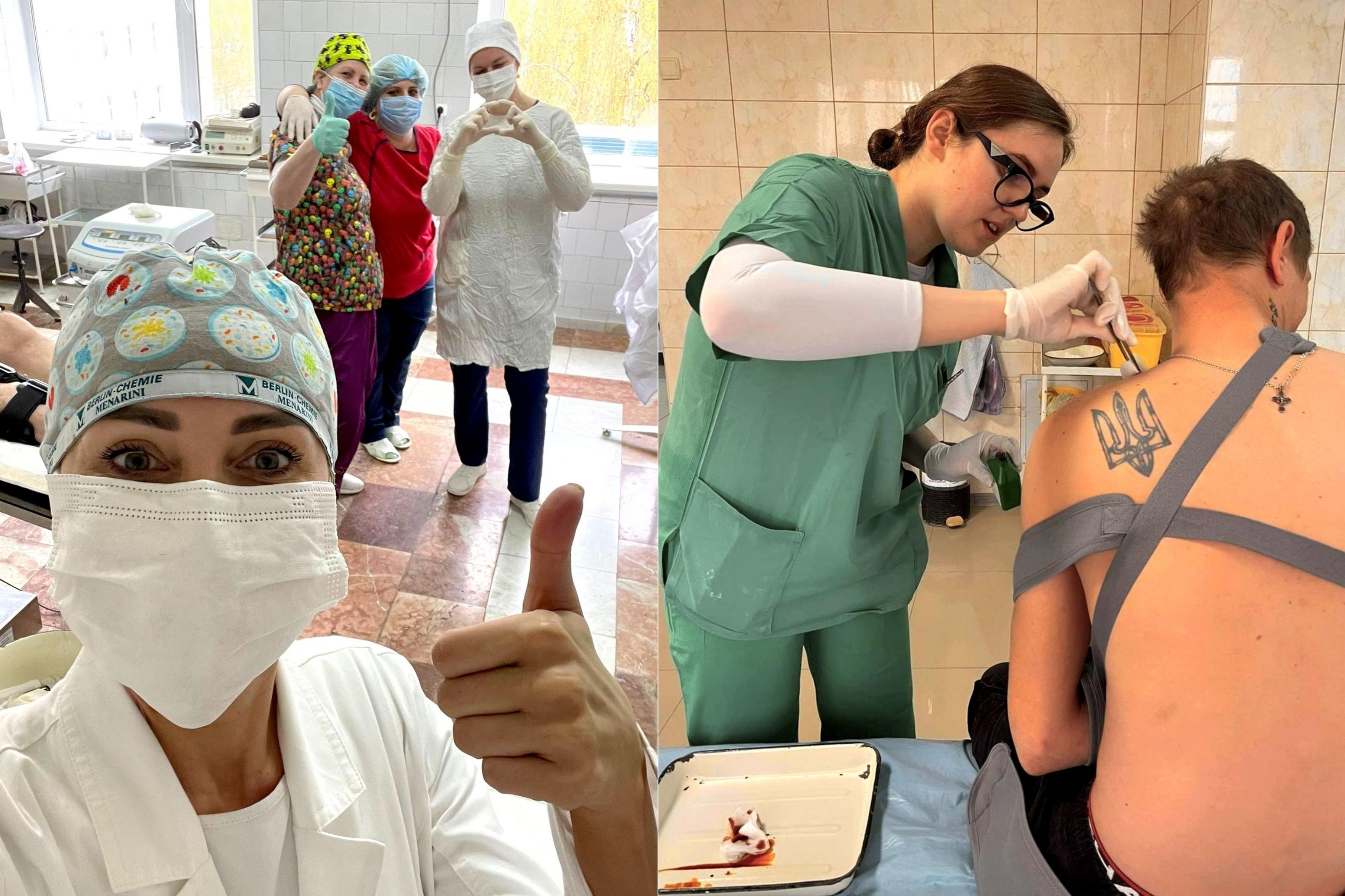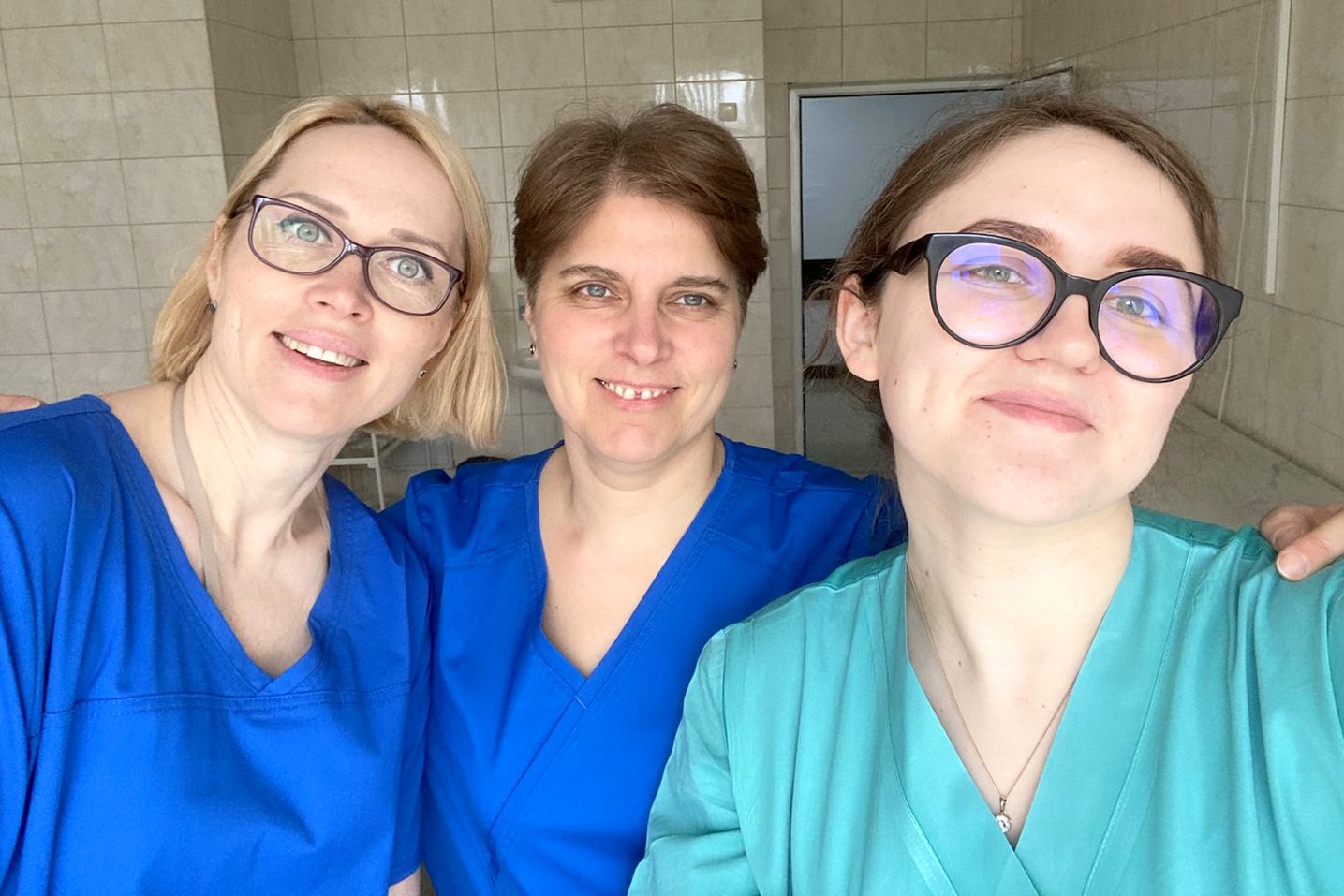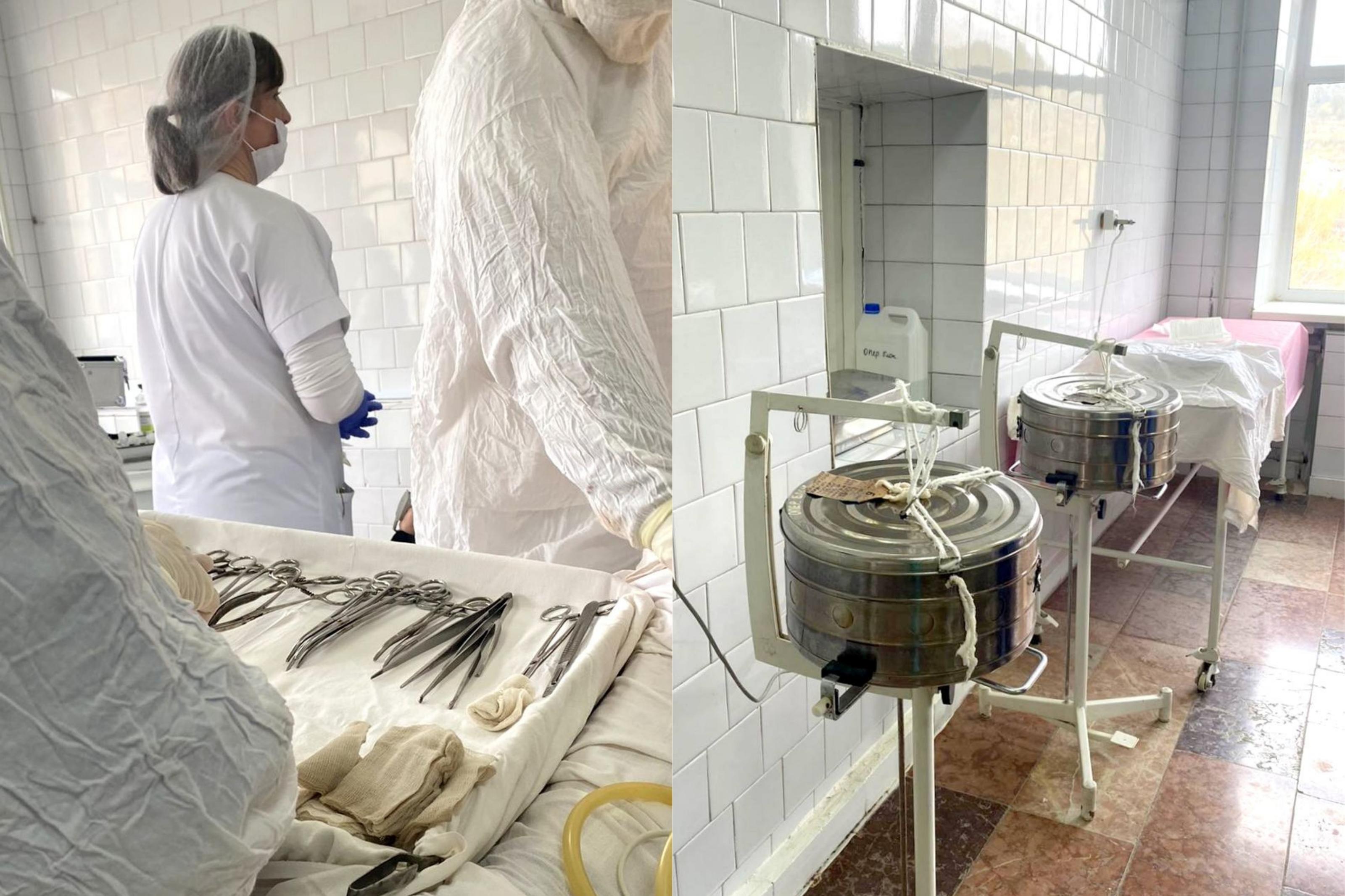 Veronika Šilinskaitė-Legenzova, a lecturer from the Department of Nursing in the Faculty of Medicine at Vilnius University (photo on the left) and Ingrida Mereškevičiūtė, a student of the supplementary nursing study programme at Vilnius university (photo on the right). Photos: V. Šilinskaitė-Legenzova and I. Mereškevičiūtė
Veronika Šilinskaitė-Legenzova, a lecturer from the Department of Nursing in the Faculty of Medicine at Vilnius University (photo on the left) and Ingrida Mereškevičiūtė, a student of the supplementary nursing study programme at Vilnius university (photo on the right). Photos: V. Šilinskaitė-Legenzova and I. Mereškevičiūtė
“When you see in reality how destructive this force is and how Ukrainians have suffered from it, it is a shocking experience. It leaves a much more horrible impression than those images you see on the screen of your TV,” said Violeta Nomeikienė, a lecturer from the Department of Nursing in the Faculty of Medicine at Vilnius University. She, together with Veronika Šilinskaitė-Legenzova, a lecturer from the same department, and a Vilnius university student of the supplementary nursing study programme Ingrida Mereškevičiūtė, shared their impressions of their trip to Ukraine. To help with the challenges facing the Ukrainian medical system as a result of the war, two Lithuanian teams of medics were sent to provide humanitarian assistance. Each team consisted of 12 members: four doctors and eight nurses. The teams were accompanied by a truck carrying supplies to Ukraine, consisting not only of the most necessary medicines and other medicinal products, but also equipment used during surgeries.
There were no doubts about their choice
“When I saw a notice that healthcare professionals were invited to go to Ukraine, I registered and informed my parents about it the same day. At first, it was difficult for them to understand my decision, but I felt strongly about it – if I were selected – I would go,” said lecturer Šilinskaitė-Legenzova. Nomeikienė agreed with her colleague, explaining that she had taken the decision to go to Ukraine without much consideration: “I saw there was a need for help and that was all – I was determined to go. Perhaps many had the same impulse, but later, after talking to their family members, changed their minds. As far as I am concerned, I had no qualms.”
Meanwhile, student nurse Mereškevičiūtė said she saw this initiative as an opportunity to gain new experience. “I was sure that extra hands in Ukraine would be of use. Of course, since I only graduated recently, some people were sceptical and asked why I was going there and what I would do there. Others, however, said that having little experience was not the main consideration that should prevent me from going. In fact, even with little experience, there was really a lot to do. Moreover, our team was very motivated, friendly and in stressful situations, when we were anxious or emotional, we supported each other,” she enthused.
It is likely, that many would consider the decision to go to a war-torn country, to be irrational and frightening. Šilinskaitė-Legenzova said that she did not have this problem, however, she was anxious on several occasions. “During the training, I became worried for the first time, about my departure to Ukraine. The military instructor told us about having food with us at all times in case of a retreat, about being taken hostage, being beaten, being raped… The second time, was before the departure, when we were asked to write down the size of bullet-proof vests and helmets we needed.”
 Republican Vilnius university hospital nurse Daiva Klingaitė-Jociunskienė, a lecturer Violeta Nomeikienė from the Department of Nursing in the Faculty of Medicine at Vilnius University and Ingrida Mereškevičiūtė, a student of the supplementary nursing study programme. Photo: I. Mereškevičiūtė
Republican Vilnius university hospital nurse Daiva Klingaitė-Jociunskienė, a lecturer Violeta Nomeikienė from the Department of Nursing in the Faculty of Medicine at Vilnius University and Ingrida Mereškevičiūtė, a student of the supplementary nursing study programme. Photo: I. Mereškevičiūtė
Air raid sirens howling on the first night
According to Šilinskaitė-Legenzova, when the Lithuanian medics arrived to Kiyv it was gloomy: “The trip was very long, because we could not take the usual route. We had to drive using detours, so it took us 10 to 12 hours to do a 500 km journey. We saw damaged buildings, tanks and other military equipment. We constantly had to stop at check points. Finally, we arrived in Kiyv just before the curfew, at about ten at night. I don’t watch horror films, but I imagine that what we saw would be a perfect setting for such a film. It was completely dark all around, the windows of the buildings were masked, and there were no people.”
Šilinskaitė-Legenzova went on to explain, that when she arrived at the hotel, she closed the curtains and put her bullet-proof vest, helmet, and survival backpack next to her. She always carried a belt bag with her. She was still wearing it during the interview. She explained, “It’s like a second skin to me, I can’t imagine going back to a regular handbag now. I have everything in it: my passport, cash... During the training for the trip to Ukraine, they recommended we carry some items of gold or cigarettes with us, and use them to barter if need be. During our first night in Kiyv, at three in the morning, I had to hastily grab all my belongings and run downstairs to the basement for protection. At about six in the morning we were allowed to leave the basement and an hour later, we were already at work. Ukrainians have lived under such tense conditions for many days now.”
Surprised by the number of patients
Since the active warfare in the Kiyv Region was over by the time the Lithuanian medical team arrived, they headed to the town of Mohyliv-Podilskyi, located on the border of Ukraine-Moldova. “We all thought that we’d have to work with those injured on the front line, giving them first aid, but our team worked in a district hospital in Mohyliv-Podilskyi, which is about the size of Jonava in Lithuania. Together with our Ukrainian colleagues, we did the regular medical work in the hospital. Since many Ukrainians fled, not only abroad, but also to more peaceful areas of Ukraine, the population in these areas of Ukraine has doubled, but the number of staff in hospitals has remained the same,” Nomeikienė commented.
Once local television reported about the Lithuanian medical personnel that had arrived to assist, the hospital corridors were quickly flooded with patients. According to Šilinskaitė-Legenzova, there were so many patients that they waited not only in the corridors outside the doctor’s office, but far beyond, in the reception area or in the neighbouring children’s diseases unit. “There were times when patients even came to the hotel where we were staying. The doctors of our team did everything they could – even seeing patients on their way back home. In difficult cases, treatment options in Lithuania were suggested for some children,” she said.

Fragments from Mohyliv-Podilskyi hospital, where Lithuanian teams of medics provided humanitarian assistance. Photos: I. Mereškevičiūtė
The challenge of a difficult emotional background
According to Mereškevičiūtė, during their stay in Ukraine, they did not have to face active warfare. However, one night at the Ukrainian-Moldovan border, air raid sirens had been endlessly howling, and the medics learned the next morning that a railway station located 70-80 km away from their location had been bombed. A similar situation occurred during the last night in Kiyv on their way back to Lithuania. Mereškevičiūtė described how she had heard explosions, and the next morning they found out that Russian rockets had struck one of the administrative buildings in Kiyv.
For Mereškevičiūtė, the language barrier and the distressing atmosphere were the biggest challenges. “I learned Russian at school, understood it, but it was way more difficult to speak. Some of my colleagues know Russian, and if I didn’t understand or couldn’t say something, they always helped me. The difficult emotional background was very tiring. We communicated with people whose lives had been destroyed, who no longer had homes and some who had lost their families. It was also difficult to see that, despite the aid that Ukraine receives, there was shortage of means for patient examination and treatment,” she explained.
Nomeikienė agreed with her colleague, saying that although there was no active fighting in the town where they had been working, they felt the tension. “People were tense. Their relatives and friends had faced the consequences of the war – some were injured, others had died, and still others had had their homes destroyed. People wanted to be comforted, they wanted to talk, others were seeking reassurance. They needed to know if we believed in the victory of Ukraine, asked us if we really supported Ukrainians and knew what was really going on. When we responded that we knew, we followed the news and supported them – they became calmer and were happy that they were not alone.” Šilinskaitė-Legenzova added that Ukrainians were particularly grateful to Lithuanians for their help: “Many times I heard Ukrainians call Lithuania a friendly country, which provided a lot of help on a regular basis. They all anticipate victory and feel our support. Local residents were hugging us and saw us off with tears, it was hard to leave.”
Photos: V. Šilinskaitė-Legenzova and I. Mereškevičiūtė
